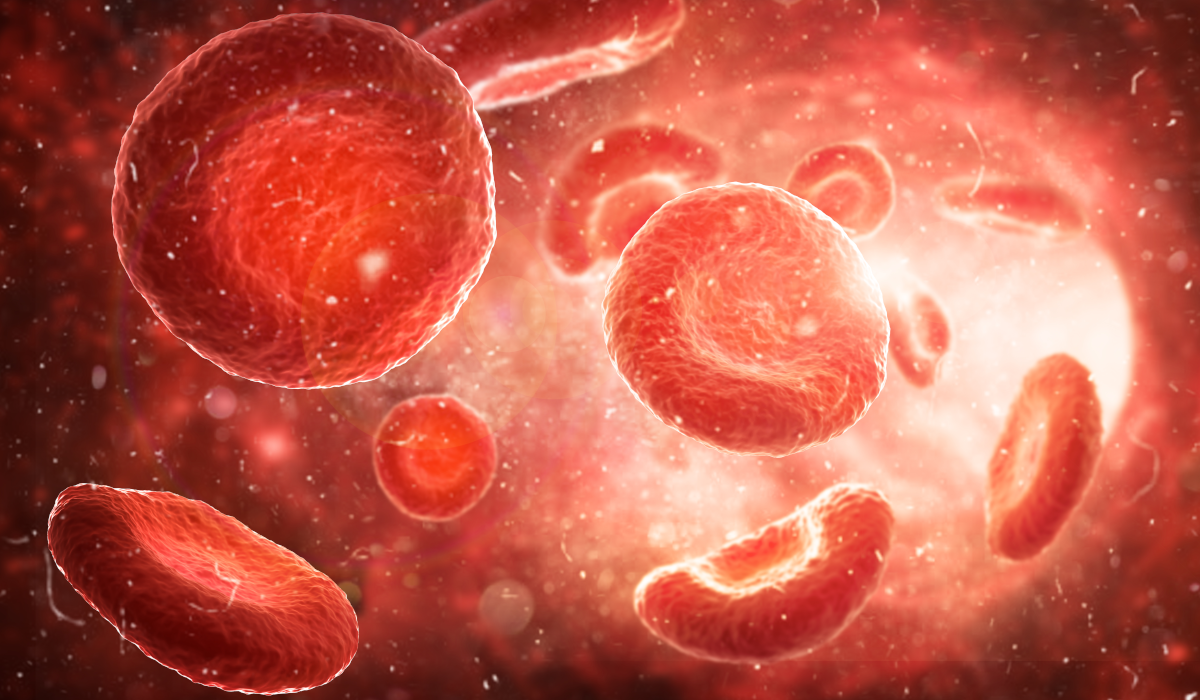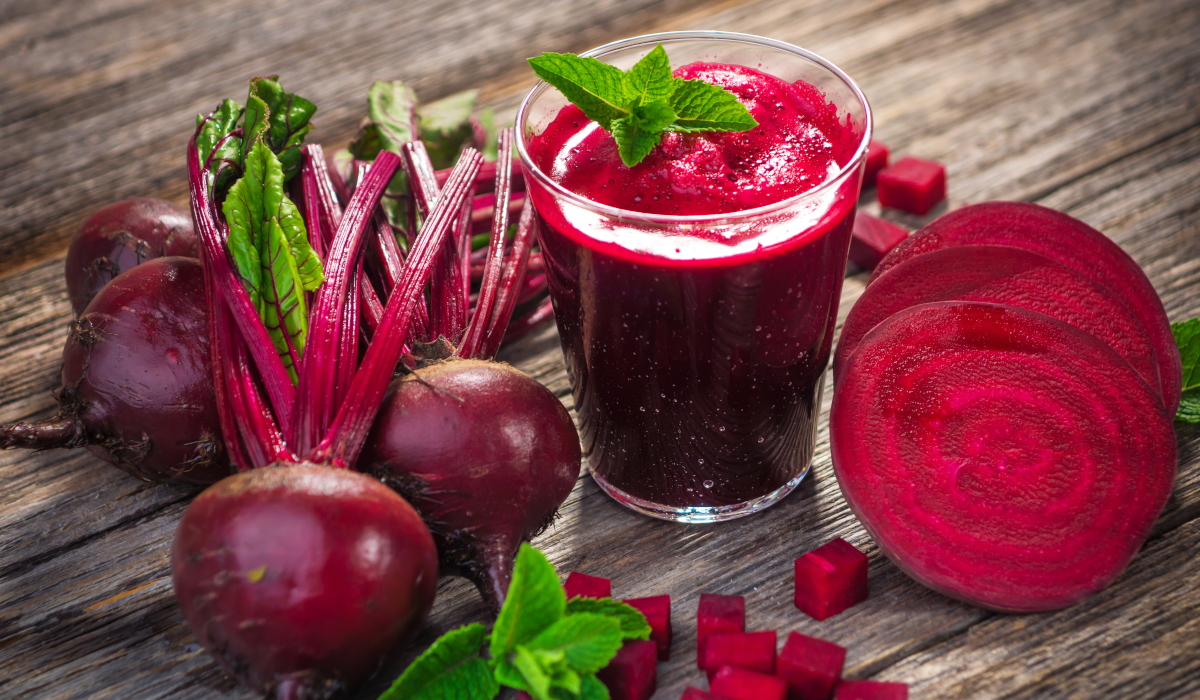Are you looking to naturally increase your nitric oxide (NO) production or curious about how nitric oxide supplements work? You’ve come to the right place.
Here we’re going to dive into the benefits, side effects, and dosage of nitric oxide supplements.
If you're a workout fanatic and you want to enhance your endurance and speed up muscle recovery, NO supplements may be the one for you.
Let's look at everything you need to know about nitric oxide.
What is nitric oxide?
Nitric oxide is a gas molecule (NO) produced naturally in the body and plays a crucial role in various physiological processes.
The gas molecule is one of the most important in the body when it comes to blood vessel health.
It is a signaling molecule that participates in a range of functions, mainly as a vasodilator— which means it helps to widen and relax blood vessels.
What are the different types of nitric oxide boosters?
Did you know? A nitric oxide booster is popular among athletes and fitness enthusiasts for its potential health and performance benefits.
Nitric oxide boosters are substances or compounds that are believed to increase the production or availability of nitric oxide (NO) in the body.
Here are common types of nitric oxide boosters…
L-arginine
L-arginine is an amino acid that serves as a precursor to nitric oxide. It’s converted into nitric oxide through the action of nitric oxide synthase (NOS) enzymes.
L-arginine is one of the main ingredients in nitric oxide-boosting supplements.
L-citrulline
L-citrulline is another amino acid that can be converted into L-arginine in the body. It’s thought to be more effective than L-arginine supplementation in increasing plasma arginine levels and sustaining them over a longer period, providing increased nitric oxide production.
Dietary nitrate

Certain foods, especially vegetables like beets, spinach, and arugula, contain nitrates. The body can convert dietary nitrates into nitric oxide.
Pycnogenol (Pine bark extract)
Pycnogenol is a natural extract derived from French maritime pine bark. Some studies suggest that it may stimulate nitric oxide production and have its fair share of heart-boosting benefits.
Antioxidants
Antioxidants, like vitamins C and E, play a role in maintaining nitric oxide levels by protecting it from degradation by free radicals. Ensuring an adequate intake of antioxidants through diet or supplements may indirectly support nitric oxide function.
Beetroot juice
Beetroot juice is rich in nitrates, which can be converted into nitric oxide. Some athletes consume beetroot juice before exercise to potentially enhance performance. It could even boost your fitness performance
Could nitric oxide enhance exercise performance?
Nitric oxide (NO) can potentially boost performance, especially in the context of exercise and physical activity.
Here are several ways in which increased nitric oxide levels may contribute to improved performance…
Vasodilation
Nitric oxide is a potent vasodilator, meaning it relaxes and widens blood vessels. This vasodilatory effect leads to increased blood flow to working muscles during exercise.
The enhanced circulation helps deliver more oxygen and nutrients to the muscles, facilitating improved endurance and delaying the onset of fatigue.
Better oxygen delivery
Increased blood flow facilitated by nitric oxide can enhance the delivery of oxygen to muscles.
Improved oxygen delivery can contribute to better energy production and, as a result, better exercise performance.
Pure muscle pump
Nitric oxide is often associated with the "muscle pump" sensation during and after resistance training. This happens when blood vessels dilate, allowing more blood to flow into the muscles. So, more ‘NO’ = bigger gains.
More energy
Nitric oxide may play a role in boosting energy. By improving blood flow and the delivery of nutrients to the muscles, a good NO supplement or booster can elevate energy levels, improving your performance in the process.
Improved exercise efficiency
Nitric oxide may also help ‘reduce the oxygen cost of exercise’, meaning that you’ll use up less lung power when you work out, improving your overall efficiency in the process.
In turn, you’ll level up your performance and enjoy consistently high-quality workouts that will result in bigger, better gains. Epic.
Enhanced recovery
Nitric oxide's role in promoting blood flow and nutrient delivery can also contribute to faster recovery after exercise.
Improved circulation helps to deliver nutrients that support muscle repair and growth with more efficiency.
It's important to note that while nitric oxide boosters, such as dietary supplements containing L-arginine and L-citrulline, are marketed for their potential performance-enhancing effects, individual responses can vary.
5 health benefits of nitric oxide supplements
Here are five potential health benefits of taking NO booster supplements as part of your diet and exercise regime.

Improved Blood Flow
Nitric oxide helps dilate blood vessels, leading to increased blood flow. This can be beneficial for cardiovascular health by reducing blood pressure and enhancing circulation. Improved blood flow may also contribute to better nutrient and oxygen delivery to tissues and organs.
Enhanced exercise performance
Nitric oxide is involved in the regulation of blood flow to working muscles. So, these body-boosting supplements may improve exercise performance by increasing oxygen and nutrient delivery to muscles during physical activity. This could result in better endurance, reduced fatigue, and enhanced recovery. Bonus.
Treat erectile dysfunction
Nitric oxide plays a key role in the relaxation of blood vessels, including those in the erectile tissue. Nitric oxide-releasing materials are used to treat erectile dysfunction as they can increase blood flow down below.
Antioxidant properties
Nitric oxide has antioxidant properties, which means it can help neutralize harmful free radicals in the body.
By scavenging free radicals, (NO) may contribute to a reduction in oxidative stress, which is associated with various chronic diseases and the aging process. In turn, you’ll reap the rewards of more energy and enhanced overall health.
Cognitive function support (brain power!)
Nitric oxide is involved in the regulation of cerebral blood flow. Some research suggests that improved blood flow to the brain may have positive effects on cognitive function, including memory and concentration.
Can you get nitric oxide from food?
Yes, you can boost your nitric oxide (NO) intake indirectly through certain foods.
The key nutrients involved in the production of nitric oxide include nitrates and amino acids like L-arginine and L-citrulline.
So, making a few simple swaps in your diet can be an effective way to increase your levels of nitric oxide naturally.
Let’s take a look…
Beetroot

Beetroot and beetroot juice are rich in nitrates. The body can convert these nitrates into nitric oxide. Consuming beetroot or beetroot juice has been associated with improved exercise performance, enhanced blood flow, and potential cardiovascular benefits.
Leafy Green Vegetables
Vegetables like spinach, arugula, and kale also contain nitrates. These can be converted into nitric oxide in the body. Including a variety of leafy greens in your diet can contribute to nitric oxide production.
Garlic
Garlic contains allicin, a compound that may stimulate the production of nitric oxide. Including garlic in your diet may have cardiovascular benefits and support nitric oxide levels.
Citrus Fruits
Citrus fruits like oranges and grapefruits contain compounds that may help stimulate the production of nitric oxide. Vitamin C, found in abundance in citrus fruits, can also support nitric oxide function.
Nuts and Seeds
Some nuts and seeds, such as almonds and sunflower seeds, contain L-arginine, an amino acid that serves as a precursor to nitric oxide. While the direct impact of L-arginine supplementation is debated, including these foods in your diet can contribute to overall nitric oxide production.
Watermelon
Watermelon contains citrulline, an amino acid that can be converted into L-arginine, which, in turn, contributes to nitric oxide production. Some studies suggest that watermelon consumption may have vasodilatory effects.
Pomegranate
Pomegranate contains antioxidants and nitrates that may contribute to nitric oxide production and can improve cardiovascular health.
Read: All about the five essential benefits of nitric oxide boosters for athletes for a deeper dive into these body-pumping supplements.
Are nitric oxide supplements safe?
Nitric oxide supplements, when taken appropriately and in moderation, are generally considered safe for many people.
But, as with any dietary supplement, it's essential to be aware of potential risks.
Here are some considerations regarding the safety of taking a nitric oxide supplement…
Individual responses: Responses to nitric oxide supplements can vary among people. While some people may tolerate them well, others may experience side effects.
Interaction with medications: Nitric oxide supplements can interact with certain medications, particularly those prescribed for cardiovascular conditions.
Quality and purity: The quality and purity of supplements can vary between brands. You should choose brands that adhere to good manufacturing practices (GMP) and undergo third-party testing.
Dosage considerations: Excessive intake of nitric oxide precursors like L-arginine may lead to higher levels of nitric oxide, potentially causing side effects. It's important to follow recommended dosage guidelines.
Health conditions: People with certain health conditions, such as herpes, may need to exercise caution with L-arginine supplementation, as it can stimulate the replication of the virus.
Pregnancy and breastfeeding: Pregnant or breastfeeding individuals should talk to their healthcare providers before using nitric oxide supplements.
Allergic reactions: Some people may be allergic to ingredients in nitric oxide supplements. Always check the product label for potential allergens.
Long-term safety: While short-term use of nitric oxide supplements is generally considered safe for many individuals, the long-term safety of these supplements has not been extensively studied.
Note: Before starting any supplementation regimen, especially with nitric oxide supplements, we recommend talking to a healthcare professional, particularly if you have pre-existing health conditions or are taking medications.
If you have low blood pressure, you should take NO supplements because of the risk that it might lower blood pressure further.

How do you take nitric oxide supplements?
Nitric oxide supplements are available in various forms, and the recommended dosage can vary depending on the specific product and its ingredients.
Here are general guidelines for taking nitric oxide supplements…
Follow the Product Instructions
Always follow the recommended dosage and usage instructions on the product label. Different supplements may contain varying amounts of NO precursors, like L-arginine and L-citrulline.
Get your timing right
To get the most from your NO booster, aim to get your timing right. Some people choose to take the supplement about 30 to 60 minutes before their workout to benefit from increased blood flow and more energy throughout.
Consider ‘cycling’
Some people may choose to cycle their use of NO supplements, meaning they take breaks on occasion. This practice can help avoid building a tolerance to No boosters and continue reaping the body-boosting rewards of this powerhouse supplement.
Hydrate
Staying hydrated is essential, especially if you are taking nitric oxide supplements for exercise performance. Keeping your hydration levels topped up helps to maintain fluid balance during physical activity.
Top tip: Pay attention to how your body responds to the supplement. If you experience any adverse effects, such as headaches, dizziness, or gastrointestinal discomfort, consider adjusting the dosage or stop using it altogether.
What are the side effects of taking Nitric Oxide supplements?

When considering nitric oxide supplements or substances that boost nitric oxide production, it's important to consider the potential side effects associated with these interventions.
Let’s explore…
Headaches
One of the most commonly reported side effects of nitric oxide supplements is headaches. This may be due to the dilation of blood vessels, leading to increased blood flow and potential changes in blood pressure.
Adjusting the dosage or discontinuing use may alleviate this side effect.
Dizziness
Some people may experience dizziness, especially when standing up quickly. This can be related to the vasodilatory effects of nitric oxide, leading to changes in blood pressure.
Nausea and gastrointestinal discomfort
Nitric oxide supplements, particularly those containing L-arginine, may cause nausea and gastrointestinal discomfort, such as bloating or stomach cramps.
Allergic reactions
Anyone allergic to specific ingredients in NO supplements may experience allergic reactions. It's important to check the product label for potential allergens and discontinue use if any signs of an allergic reaction occur.
Interactions with medications
NO supplements can interact with certain medications, especially those prescribed for cardiovascular conditions.
This interaction may lead to changes in blood pressure or other adverse effects.
Flushing or redness
Some people may experience skin flushing or redness, which can be a result of increased blood flow to the skin.
Increased bleeding risk
L-arginine, a common ingredient in NO supplements, can affect blood clotting. People taking anticoagulant medications or those with bleeding disorders should exercise caution and consult with their healthcare providers.
Note: NO is a critical player in the regulation of blood pressure, and its deficiency or impaired function can contribute to high blood pressure if you don’t follow the recommended doses—which brings us to our next subject.
NO Dosage

The correct dosage of nitric oxide supplements can vary depending on the specific supplement, its formulation, and individual factors like your age, weight, health status, and fitness goals.
So, it's crucial to follow the recommended dosage provided by the supplement manufacturer.
Here are general guidelines for some common nitric oxide supplement ingredients…
L-arginine
Dosages for L-arginine supplements can range from around three to six grams per day. But, it's essential to start with a lower dose and gradually increase.
L-citrulline
For L-citrulline supplements, dosages can also range from three to six grams per day. As with L-arginine, it's advisable to start with a lower dose and adjust based on personal response.
Nitrate supplements
Dosages for nitrate supplements can vary, but typical recommendations might suggest around 300 to 500 milligrams of nitrate.
How to boost your NO levels naturally?: Bonus tips
There are several natural alternatives and lifestyle practices that may help support the body's natural production of nitric oxide. Here are some natural ways to produce nitric oxide…
Regular exercise
Both aerobic exercise (like jogging or cycling) and resistance training will increase your general nitric oxide production, improving your strength and endurance levels in the process.
Sunlight exposure
Regular exposure to sunlight helps stimulate the production of nitric oxide in the skin. So, get out in the sunshine when you can, but make sure you wear sunscreen!
Get enough sleep
Quality sleep is essential for nitric oxide production and overall health. Aim for seven to nine hours of sleep per night to boost your NO levels and improve your overall wellbeing.
NO supplements: final thoughts…
In conclusion, Nitric oxide (NO) supplements can enhance nitric oxide production in the body, improving blood vessel dilation, immune response, and exercise performance.
If you're into supplements, there's a variety of substances that include L-arginine, L-citrulline, nitrate salts, and pycnogenol, which act as precursors to nitric oxide or enhance its production.
Alternatively, if you're more into natural ways of increasing your nitric oxide levels, you can up your dietary intake of nitrate-rich foods (e.g., beets, leafy greens), L-arginine-containing foods (e.g. nuts, seeds), and exposure yourself to sunlight.
NO can also increase your blood flow, deliver oxygen to muscles, improve your endurance, and regulate your blood pressure levels.
Get more gains with CrazyBulk

CrazyBulk's Nitric Max supplement has been formulated with premium NO-boosting ingredients, including Iron, l-arginine, citrulline malate, beta-alanine and green tea extract.
The nitric oxide booster is designed to improve blood flow and oxygen circulation during workouts by leveling up your natural NO levels in a big way.
Feel the performance-boosting benefits, from heightened energy and endurance to rapid recovery rates and extra pump and achieve the gains of your dreams.
Frequently Asked Questions
Do nitric oxide supplements really work?
Nitric Oxide helps vasodilation, cardiovascular health, exercise performance, immune response, neurotransmission, wound healing, neuroprotection and more.
Most nitric oxide supplements don't actually contain nitric oxide. Instead, they use L-arginine to enzymatically synthesize nitric oxide in a number of bodily tissues.
Can you take nitric oxide every day?
While adding nitric oxide precursors from natural sources like foods is generally safe, using nitric oxide supplements regularly requires careful consideration.
Talking to a healthcare professional can help ensure that such interventions align with your overall health goals and do not pose any risks or interactions with existing medical conditions or medications.
Always make sure you follow the guidelines and dosage provided for you on the label.
Is nitric oxide available as a supplement?
Nitric oxide is available to take as a supplement in various forms such as; L-Arginine, L-Citrulline, Nitrate, Beetroot Extract, Nitric Oxide Precursor Formulas and Pycnogenol (Pine Bark Extract).
Over 299,434 purchases
Over 509,389 bottles sold
Over 30,563,340 pills taken








